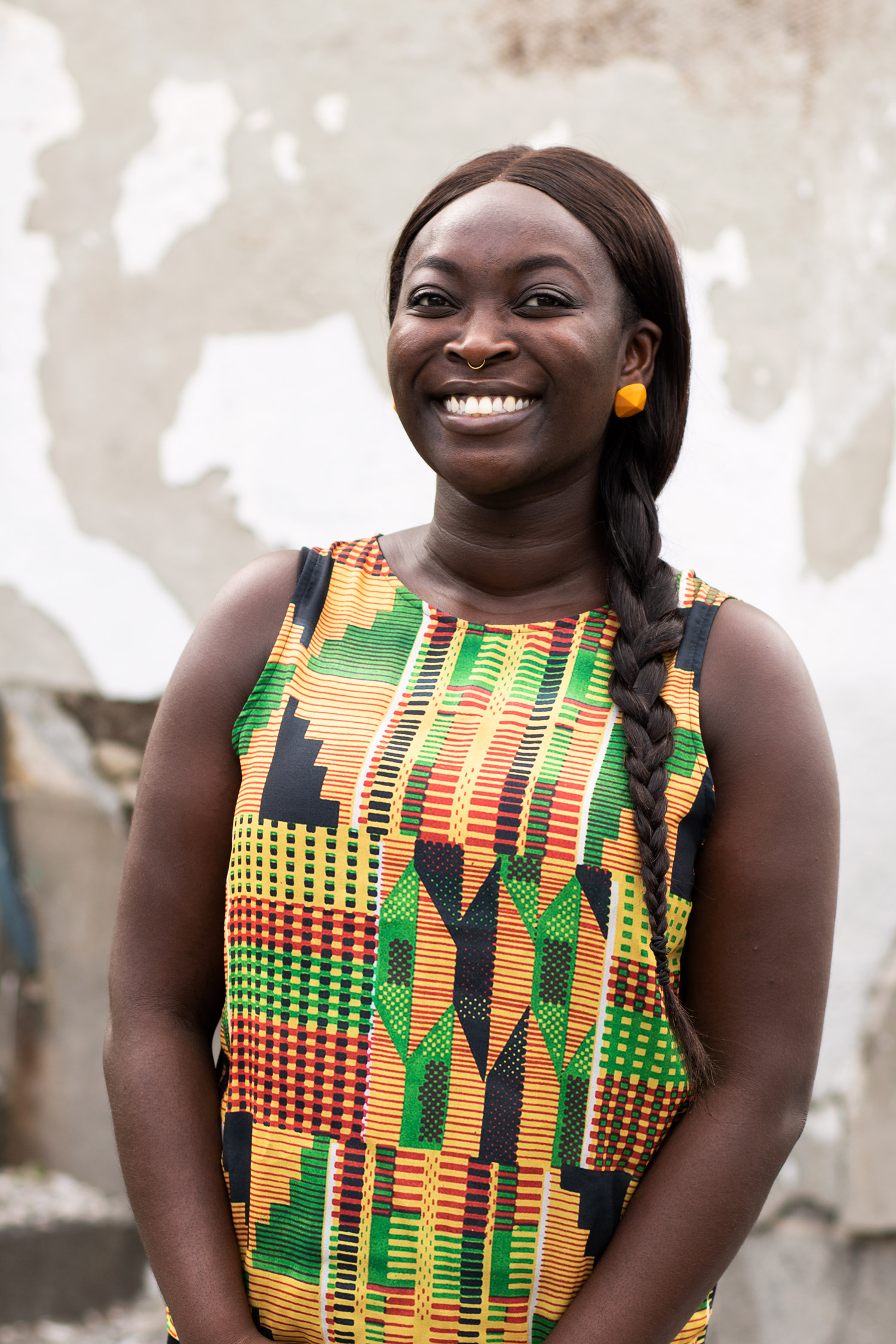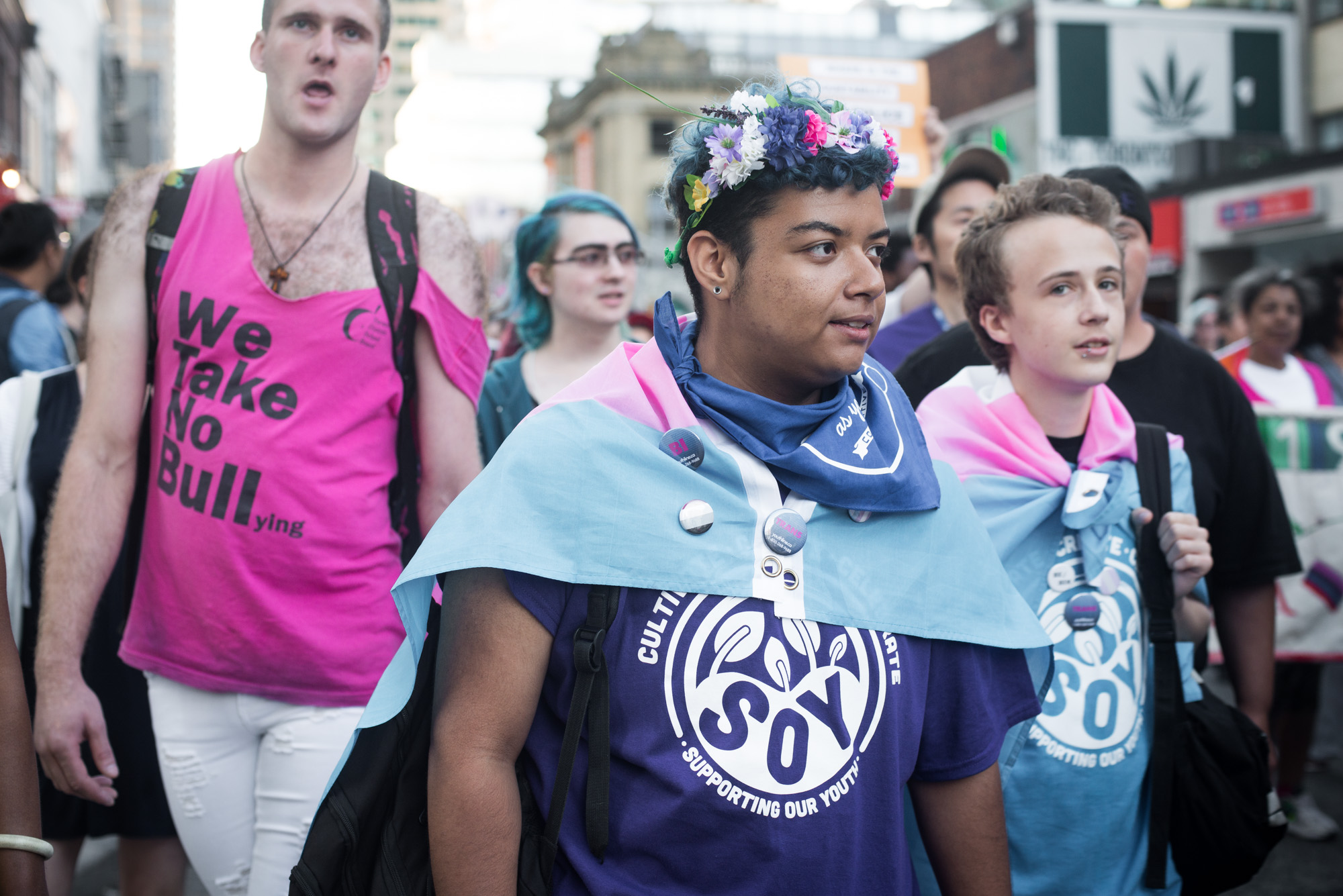With the federal election just a couple of days away, LGBTQ2S+ organizations across the country are appealing to parties about centring issues relevant to the communities they serve. One such organization is the Ottawa-based Canadian Centre for Gender and Sexual Diversity (CCGSD), which focuses on the needs of LGBTQ2S+ youth. Xtra spoke with its executive director, Debbie Owusu-Akyeeah, via video call from her home in Ottawa about her work advocating for LGBTQ2S+ youth and what she hopes to see in the next government.
Tell me about the work your organization does for LGBTQ2S+ youth.
The Canadian Centre for Gender and Sexual Diversity (CCGSD) came into existence in 2005. It’s a youth organization that centres on the mission of creating a world free of discrimination. We advocate for gender and sexual diversity through our mandate of education, advocacy and research.
Education is the tool by which we try to make the world a better place for queer and trans people. We do educational workshops and programming across the country and we work primarily in schools. We also do a lot of work with educators and students, and we strive to transform the spaces that young people spend a lot of the time—like schools—to make sure that they’re better and safe, not only for them, but we’re also transforming the curriculum to be affirming of all LGBTQ2S+ people.
What was it like serving LGBTQ2S+ youth during the pandemic?

Credit: Courtesy Debbie Owusu-Akyeeah
Here in Ontario, it’s been a challenge trying to accommodate the needs of educators and students who are going through hybrid learning during the pandemic. Young people who are queer and trans who were at home, and we saw that their mental health took a huge hit during COVID-19 with quarantines and lockdown. We really needed to think about not only how our work is getting to them, but how teachers see the importance of it.
Young people may have had access to connections in school that they didn’t at home. A lot of young people were at home with parents who weren’t affirming. We saw challenges in accessing groups like gay-straight alliances, or gender and sexuality alliances—clubs that were centred on queer and trans rights and advocacy. It made it challenging for these youth that maybe they can’t say their pronouns out loud, because a parent may have been in proximity.
How has the Canadian Centre for Gender and Sexual Diversity worked with the federal government in the past?
This summer, we released a report based on the CCGSD’s written submission to the federal government’s LGBTQ2 Action Plan. We asked our supporters in the broader public what they thought our submission should include. We framed it as an opportunity for their voice to be heard directly by decision-makers, and we were simply the messenger.
We identified four areas to focus on when it comes to LGBTQ2S+ youth: increased mental health support, specifically in schools, that meets the needs of LGBTQ2S+ youth; justice and legal reform that speaks to repealing the blood ban, entrenching sex worker rights and protection, centring the rights of intersex people and banning conversion therapy; LGBTQ2S+housing and homelessness; and a comprehensive sex education and LGBTQ2S+ affirming curriculum.
Right now, a key part of the LGBTQ2 Secretariat within the government is consulting organizations. It’s almost like they can’t function without consulting us, which allows for those running these organizations to have a seat at the table.
How important is the forthcoming federal election for your organization?
Young people are often the ones having to be like, “Hey, don’t forget about us!” This particular election, a significant portion of the voting bloc makes up 40 percent of the electorate—millennials and Gen Z. We’re very significant when it comes to influencing things at the moment. It’s a very interesting time.
What would you want to see from a new federal government?
If a new government were to sit, I hope they ensure that the LGBTQ2 Secretariat’s role is long-lasting. Make it permanent, allow that thing to exist, even if governments change, even if it’s a different party. Because once that’s eliminated, you lose all of the momentum that we’ve gotten in the last few years, where our organizations and communities actually feel like we’re not at least being heard, but the telephone has literally physically been given to us.
“Don’t give us crumbs; give us substantial long-term funding that is annual.”
In terms of funding, don’t give us crumbs; give us substantial long-term funding that is annual. The LGBTQ2S+ sector has been historically underfunded, which is reflective of the ongoing homophobia and transphobia that exists within our federal government.
Our community also has a level of distrust with national decision-makers. The state in itself is a mechanism of oppression. I don’t think that it would be right to have this conversation without mentioning that. You’re not going to have a representative from public health agency of Canada going directly to homeless or houseless people being like, “Hi, I’m here, what do you need?” That doesn’t work. Our organizations serve as that mechanism, because we’re run by people who are from the community, who have lived experiences, who have been doing the work of even getting data to give to the federal government that is life changing.
I also want to see political parties actively mention that they’re going to not only fund us substantially, but that they are going to ensure that there’s a level of collaboration when it comes to implementing certain policy implementations that they’re looking to put into place.
Very recently, the Liberal government announced their LGBTQ2 Capacity Fund, which has been regarded as historic. That funding ends in March 2022. What’s going to happen in March 2022?
What’s one concrete way the next federal government can support the work of the CCGSD?
I would like to see the government actively send out communications to queer and trans organizations, because they have that information, they know where to find us, they know exactly who to go to. I think without that, it’s another signal to our communities that we’re just a group that simply doesn’t matter to decision-makers.
I think the message that this election is going to actually serve is not only do we matter, but we are very attentive, and we are going to make decisions.
I think elections are an awesome opportunity for people to really understand how power works in this country. Power likes comfort, and when you disrupt that comfort, power is forced to pay attention. This particular election, for young LGBTQ2S+ people, is an election for us to send a message: keep your promises, consult us, fund us.
Otherwise, we’re going to look elsewhere.
This interview has been edited for length and clarity.


 Why you can trust Xtra
Why you can trust Xtra


